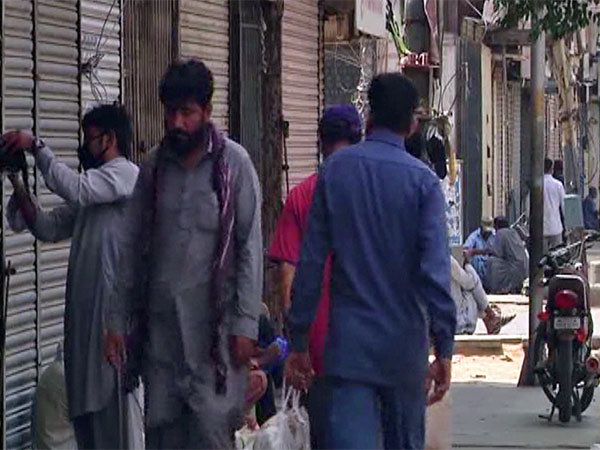Kohat Cantonment [Pakistan], September 2 (ANI): In the Khyber Pakhtunkhwa province of Pakistan, traders in Kohat Cantonment held a rally to protest the sealing of their stores over non-payment of rent, which they said was hiked by 400 per cent, according to a report by Pakistan-based daily, Dawn.
The president of the cantonment trader body, Mansoor Bagh, stated on Sunday that they could no longer afford the excessive rent increase as they were already struggling due to the ongoing economic crisis, inflated electricity bills, and high taxes. He further claimed that the Kohat Cantonment Board is running its own business, causing additional distress. He also alleged that board officials are harassing the shopkeepers, frequently sealing their shops despite their payment of PKR 40,000 to 60,000 in rent per shop, Dawn stated.
Shiraz Paracha, another leader, described to Dawn that the major rent increase as comparable to an economic disaster. He mentioned that multiple meetings with the cantonment board officials to negotiate a reduction in rent had been unsuccessful. He also noted that in Kohat’s main bazaar, traders were paying relatively low rents between PKR 25,000 and PKR 40,000. The protesters have called on the Kohat division commissioner, the deputy commissioner, and security officials to intervene and address the issue.
Earlier on Wednesday, the Pakistan City Traders Association protested against inflated electricity bills, rising inflation, and the new tax regime known as the Tajir Dost Scheme. They demanded the cancellation of the scheme and the withdrawal of notices issued to both registered and unregistered traders/shopkeepers, which impose an advance tax of PKR 60,000 per month, Dawn stated.
As per Dawn’s report, shopkeepers in Khyber Pakhtunkhwa face numerous challenges, including security issues due to instability and violence, which impact safety and customer flow. Economic instability, characterized by inflation and currency fluctuations, affects costs and consumer spending. Additionally, competition from the informal sector and bureaucratic red tape, along with occasional corruption, contribute to a challenging business environment. (ANI)











